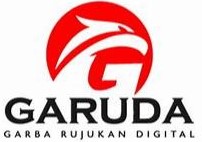At METAL: Jurnal Sistem Mekanik dan Termal, we are committed to maintaining the highest standards of publication ethics and follow the guidelines provided by the Committee on Publication Ethics (COPE). Our goal is to ensure the integrity and transparency of the research we publish. This publication ethics statement outlines the responsibilities and expectations for authors, reviewers, editors, and the publisher involved in the submission, peer-review, and publication process.
1. Duties of Authors
Authors submitting to METAL must adhere to the following ethical standards:
1.1 Originality and Plagiarism
- Authors must submit original work that has not been previously published or under consideration elsewhere.
- Proper acknowledgment must be given to all sources. Any form of plagiarism or uncredited use of others' work, including self-plagiarism, will result in rejection or retraction.
- METAL uses plagiarism detection tools to verify originality.
1.2 Authorship and Contribution
- All listed authors must have substantially contributed to the conception, design, execution, or analysis of the research.
- Ghostwriting, guest authorship, or honorary authorship are strictly prohibited.
- The corresponding author must ensure that all listed co-authors approve the final version of the manuscript and agree to its submission. Any changes to authorship after submission must be approved by all listed authors.
1.3 Conflict of Interest Disclosure
- Authors must disclose any financial, personal, or institutional conflicts of interest that could influence the research.
- All sources of funding must be acknowledged in the manuscript.
1.4 Data Accuracy and Integrity
- Authors must ensure that data is accurately presented and free from fabrication, falsification, or inappropriate manipulation.
- If an error is discovered after publication, authors must promptly notify the editors to issue a correction or retraction if necessary.
1.5 Ethical Approval and Research Involving Humans or Animals
- Research involving human participants or animals must comply with international ethical guidelines.
- Authors must provide documentation of ethical approval by a recognized ethics committee, and informed consent must be obtained where applicable.
2. Duties of Reviewers
Reviewers play a critical role in ensuring the quality and integrity of the journal's content through impartial and constructive assessments.
2.1 Confidentiality
- Manuscripts under review must be treated as confidential documents. Reviewers must not discuss or share the manuscript's content with others.
- Reviewers must not use any unpublished data for personal research or gain.
2.2 Impartiality and Objectivity
- Reviews must be objective, constructive, and free from personal bias.
- Reviewers must provide specific comments to help authors improve their work. Inappropriate or hostile language will not be tolerated.
2.3 Conflict of Interest
- Reviewers must decline the review if they have any conflict of interest with the authors or the research content.
- If a conflict becomes apparent during the review process, reviewers must notify the editor immediately.
3. Duties of Editors
The editorial team of METAL is responsible for maintaining the academic integrity of the journal and making fair and unbiased decisions throughout the publication process.
3.1 Editorial Independence and Fair Play
- Editorial decisions are based solely on the manuscript's academic merit, originality, and relevance to the journal’s scope.
- Editors ensure that all authors are treated fairly, without discrimination based on gender, race, ethnicity, nationality, or political beliefs.
3.2 Confidentiality
- Editors and editorial staff must maintain confidentiality regarding submitted manuscripts and refrain from sharing information with unauthorized parties.
- Editors must not use unpublished information for their own research or benefit.
3.3 Conflict of Interest
- Editors must recuse themselves from handling manuscripts where a conflict of interest exists with the authors or research content.
- The journal ensures that editors’ conflicts of interest are transparently managed following COPE guidelines.
3.4 Handling Complaints and Appeals
- METAL follows COPE guidelines for addressing complaints, appeals, and ethical concerns.
- If an author disputes an editorial decision, they may submit an appeal to the Editor-in-Chief, who will review the case fairly and transparently.
4. Duties of the Publisher
The Mechanical Engineering Department of Universitas Andalas, as the journal’s publisher, is responsible for ensuring that METAL upholds the highest publication standards and practices.
4.1 Legal Compliance
- The publisher ensures that the journal complies with international copyright laws and ethical standards.
4.2 Ensuring Access and Preservation
- As an open-access journal, METAL ensures that all content is freely available to readers worldwide under the Creative Commons Attribution-NonCommercial-ShareAlike 4.0 International License (CC BY-NC-SA 4.0).
- The publisher works to preserve the journal’s content through archiving in institutional repositories and indexing in relevant databases.
4.3 Post-Publication Corrections and Retractions
- The publisher works closely with the editorial team to correct or retract articles when necessary, following COPE guidelines.
- Retractions are issued in cases of serious ethical violations, such as plagiarism or data fabrication. Corrections are issued for minor errors that do not compromise the research's integrity.
5. Addressing Allegations of Misconduct
METAL takes allegations of research misconduct seriously and follows COPE’s guidelines for dealing with ethical issues.
5.1 Plagiarism and Redundant Publication
- Plagiarism, duplicate submission, and redundant publication are unacceptable and will result in immediate rejection or retraction.
- METAL uses plagiarism detection software to verify the originality of all submissions.
5.2 Handling Complaints and Ethical Violations
- Complaints regarding potential ethical violations may be submitted to the editorial office. These complaints will be handled confidentially and fairly.
- If misconduct is confirmed, the journal will take appropriate corrective action, including corrections, retractions, or the notification of institutional authorities if necessary.
6. Transparency and Post-Publication Discussion
METAL promotes transparency and post-publication discussion to ensure that the scientific record remains accurate and reliable.
- The journal encourages letters to the editor and discussions on external moderated platforms to engage the academic community.
- Authors are expected to respond to post-publication feedback and cooperate with the editorial team to resolve any issues.








